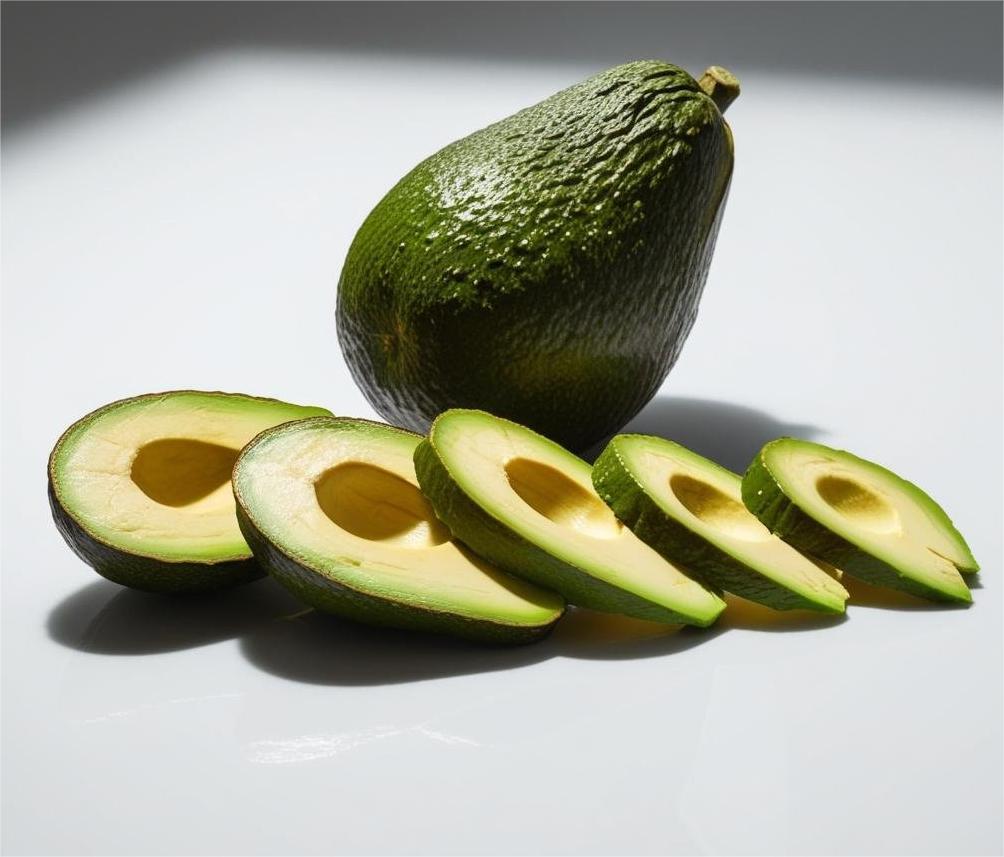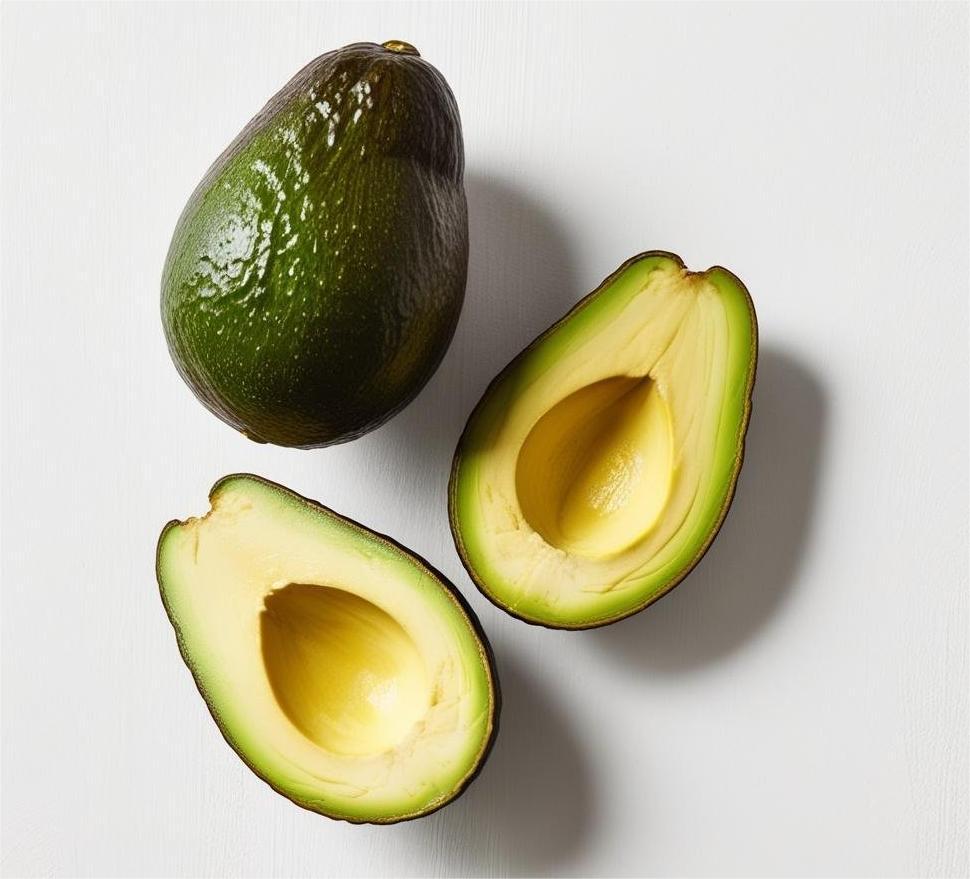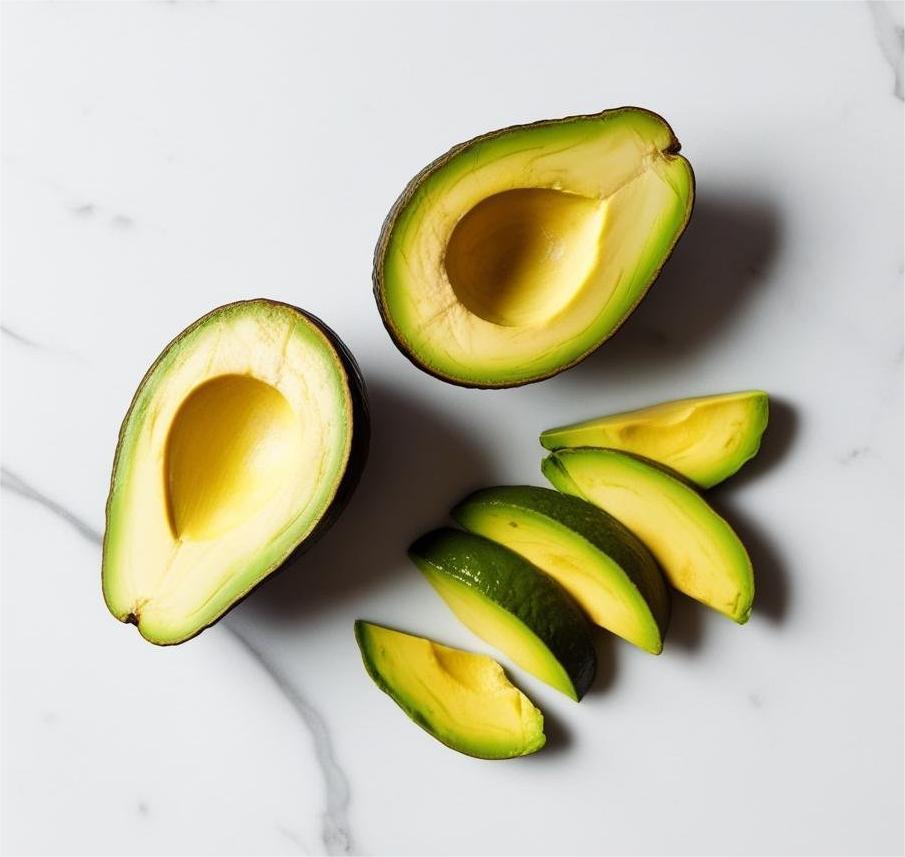Avocados are a popular and nutritious fruit enjoyed around the world. This blog post will explore the avocado’s origins, health benefits, culinary uses, and provide tips for buying and storing them.

Origin and History
The avocado, Persea americana, originated in south-central Mexico. Evidence suggests that humans have consumed avocados for at least 9,000 to 10,000 years. The fruit then spread throughout Central and South America.
Ancient civilizations like the Aztecs and Mayans valued the avocado. The Aztecs even had a name for it: āhuacatl. This word also meant testicle, likely due to the fruit’s shape. Spanish explorers encountered avocados in the 16th century. They introduced them to Europe, but avocados didn’t gain widespread popularity there right away.
The first avocados in California were planted in 1871. However, the avocado industry didn’t truly take off until the early 20th century. Rudolph Hass patented the Hass avocado in 1935. This variety, known for its creamy texture and nutty flavor, is now the most popular type worldwide.
Health Benefits of Avocado
Avocados are packed with nutrients. They are a good source of healthy fats, fiber, vitamins, and minerals. Here’s a breakdown of some key health benefits:
- Healthy Fats: Avocados are rich in monounsaturated fatty acids. These fats can help lower bad cholesterol levels and reduce the risk of heart disease.
- Fiber: Avocados are high in fiber, which promotes digestive health. Fiber helps you feel full, which can aid in weight management. It also helps regulate blood sugar levels.
- Vitamins: Avocados contain several essential vitamins, including vitamin K, vitamin C, vitamin B5, vitamin B6, and vitamin E. These vitamins play vital roles in various bodily functions, such as immune system support, energy production, and cell protection.
- Minerals: Avocados are a good source of minerals like potassium and magnesium. Potassium helps regulate blood pressure. Magnesium is important for muscle and nerve function.
- Antioxidants: Avocados contain antioxidants like lutein and zeaxanthin. These antioxidants are beneficial for eye health. They help protect against age-related macular degeneration and cataracts.
Regular consumption of avocados may contribute to improved heart health, better digestion, weight management, and enhanced nutrient intake. It’s important to note that while avocados are healthy, they are also relatively high in calories, so moderation is key.

Avocados in the kitchen: Culinary uses:
Avocados are incredibly versatile in the kitchen. Their creamy texture and mild flavor make them a great addition to both sweet and savory dishes.
- Guacamole: Perhaps the most popular avocado dish is guacamole. This dip typically includes mashed avocados, lime juice, onion, cilantro, and chili peppers. It’s a staple at parties and a great snack with tortilla chips.
- Salads: Sliced or diced avocados add a creamy texture and healthy fats to salads. They pair well with greens, tomatoes, cucumbers, and other vegetables. You can also add them to fruit salads for a unique twist.
- Sandwiches and Toast: Avocado slices are a delicious and nutritious addition to sandwiches and toast. Avocado toast, simply mashed avocado on toast with salt and pepper, has become a breakfast staple.
- Smoothies: Avocados can be blended into smoothies for a creamy texture and added nutrients. They don’t have a strong flavor, so they blend well with fruits and vegetables.
- Soups: Pureed avocados can be added to cold soups for a creamy texture. They are often used in chilled avocado soups with lime and cilantro.
- As a Substitute for Butter or Oil: Mashed avocado can be used as a substitute for butter or oil in baking recipes. This can reduce the fat content and add moisture to baked goods.
- Desserts: While less common, avocados can be used in desserts. They can be blended into chocolate mousse or used to make avocado ice cream for a rich and creamy treat.
Tips for buying and storing avocados:
Buying Avocados
- Check the Color: The color of the avocado’s skin can indicate ripeness, but it varies by variety. Hass avocados turn darker green or almost black when ripe. Other varieties may remain green.
- Feel the Avocado: Gently squeeze the avocado in the palm of your hand. A ripe avocado should yield to gentle pressure but not feel mushy.
- Check the Stem: Flick off the small stem at the top of the avocado. If it’s green underneath, the avocado is likely ripe. If it’s brown, the avocado may be overripe. If it’s hard to remove, the avocado is not yet ripe.
Storing Avocados
- Unripe Avocados: Store unripe avocados at room temperature. To speed up ripening, place them in a paper bag with an apple or banana. These fruits release ethylene gas, which promotes ripening.
- Ripe Avocados: Store ripe avocados in the refrigerator. This will slow down the ripening process and keep them fresh for a few days.
- Cut Avocados: Cut avocados brown quickly due to oxidation. To prevent browning, sprinkle the cut surface with lemon or lime juice. Wrap tightly in plastic wrap or store in an airtight container in the refrigerator. You can also submerge the cut avocado in water, but this may affect the texture slightly.

Conclusion:
Avocados are a delicious and nutritious fruit with a rich history and a wide range of culinary applications. From their origins in Mexico to their current popularity worldwide, avocados have become a staple in many diets. By understanding their health benefits, culinary uses, and proper storage techniques, you can fully enjoy this versatile fruit.
5 frequently asked questions (FAQs) about the avocado fruit:
1. What are the health benefits of eating avocados?
Avocados are rich in healthy monounsaturated fats, fiber, potassium, and vitamins C, E, and K. They help support heart health, improve digestion, and may reduce inflammation.
2. How do I know when an avocado is ripe?
A ripe avocado yields slightly to gentle pressure. If it feels too firm, it’s not ready yet. If it’s mushy or has sunken spots, it may be overripe.
3. How should I store avocados?
Unripe avocados should be kept at room temperature until they ripen. Once ripe, store them in the refrigerator to slow further ripening.
4. Can I freeze avocados?
Yes, avocados can be frozen, especially if mashed. Add a bit of lemon or lime juice to prevent browning before storing in an airtight container or freezer bag.
5. Are avocados good for weight loss?
Yes, in moderation. Avocados are calorie-dense but high in fiber and healthy fats, which can promote fullness and reduce overall calorie intake.
#Avocado#AvocadoVibes#AvocadoReceipe#Avocadofruit